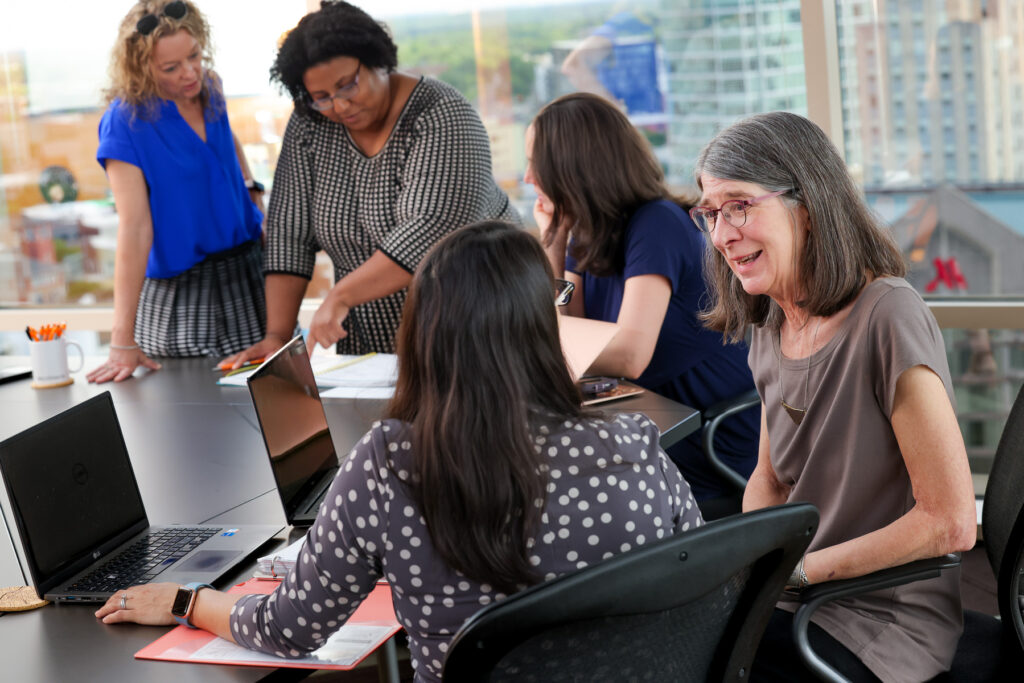Last week I submitted a proposal for a new project, and one of the required components from the RFP read as follows: Describe your experience/skills related to diversity, equity, access and inclusion (DEAI) in setting goals and evaluating the impact of your work. I found the framing of this item both unexpected and appreciated. My initial response to this question ended up being a first-person response that was a mismatch for the rest of the proposal’s tone and so I ended up submitting an edited version instead. And I found that I still had things to say. So, here is blog post #1 from a short series on this and related topics to share things that have been swimming around in my head and in the KPC team’s conversations for the past couple of years.
We have made a number of shifts in recent years to take a more active position in supporting diversity, equity, access, and/or inclusion in our work. KPC has evaluated NSF-funded projects designed to broaden participation in STEM for almost two decades. For much of that time, we relied on our client teams to define diversity, equity, access, and inclusion. We then followed their lead and their goals to evaluate the success of the project. By extension, we only included accountability structures related to diversity, equity, access, and inclusion in some projects (even though almost all of the projects we evaluate focus on broadening participation and should have such goals).
In 2020, I became keenly aware that this approach creates scenarios in which our work is complicit in perpetuating systemic inequities within the educational systems we evaluate. Since that time we have become more intentional about our work in multiple ways. First, we began to align ourselves with clients who truly understood and were prepared to do work related to diversity, equity, access, and/or inclusion. We began interviewing new and potential clients and partners, using a series of questions that help us understand more about whether and how collaborators were either (1) already positioned to do intentional work that built on existing, trusting relationships or (2) open to the idea of partnering with us to think through goals and accountability structures to begin doing this work. Since instituting this process, we have only added new collaborators who fit one of these descriptions, passing on new projects that don’t align with one of our two priority areas.
Second, we needed to be more intentional about working with clients to create goals and accountability structures related to the diversity, equity, access, and inclusion components. This often involved a shift in focus to earlier stages of the program planning process to demonstrate the successful use of intended practices. For example, we have helped clients do front-end listening sessions to understand the needs of diverse community members and to begin to build relationships. We have conducted culture audits of curricular materials to verify inclusive practices. We have also documented recruitment processes to ensure that programs are serving the students intended and not just those who were most readily available and interested.
Third, we have taken active steps to help clients think about the complicated landscape that is DEAI with humility. DEAI is often spoken about and written about as though it is a single thing. In reality, D, E, A, and I are different but related concepts. The KPC team meets monthly to talk about these issues, our own evolving understanding of who we want to be in this space, and ways to apply what we are learning to our work. We are all learning about and thinking about D, E, A, and I in the ways that make the most sense to us as individuals and colleagues. And we accept the fact that this work will never be finished. Because D, E, A, and I are so central to the kinds of projects we evaluate, we bring these perspectives to clients and collaborators, as well, to talk about what we think we understand and how to learn and grow together moving forward. See the next blog post in this series for examples on what that actually looks like!




